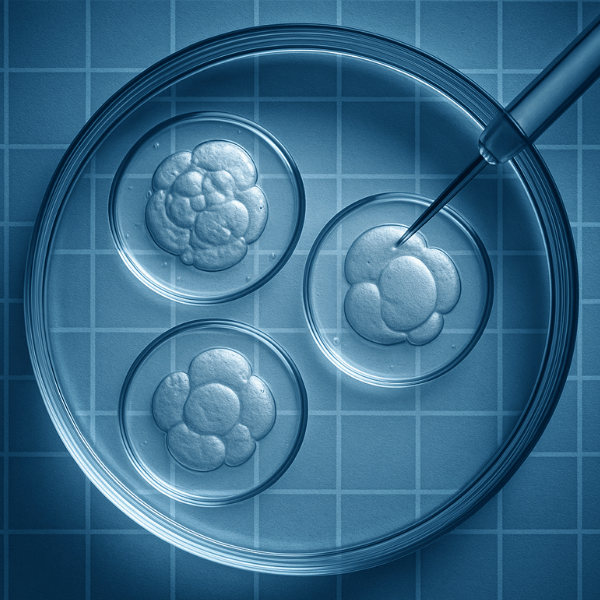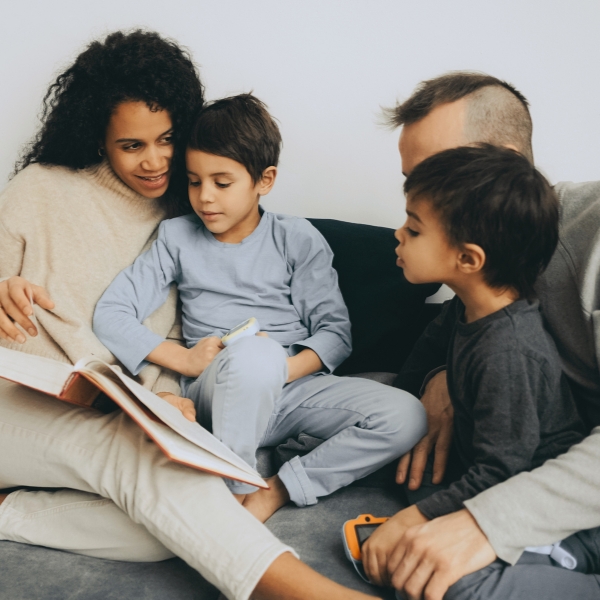In this blog post I wanted to explore embryo donation and why it might be a bit different to sperm, egg or double donation. We regularly get emails and phone-calls at the office asking about embryo donation and the questions cover a range of areas. Some of the enquiries are asking legal or practical questions and we generally direct those questions to the HFEA (Human Fertilisation and Embryology Authority) or to one of our lawyer supporters, depending on the subject.
Some people are asking for support around deciding what to do with remaining embryos that they don’t plan to use as they’ve completed their families. Should they continue paying for storage? Should they discard them or offer them to research? Should they donate them to another family?
These are very personal and sometimes difficult decisions. People have seen their embryos turning into much-wanted children and they know the potential that remains in those other embryos currently in storage. The conversation and decision on what to do can be emotional and touches on philosophical and religious beliefs.
Of course, one option for surplus embryos is to donate them to another family and we get calls from people who are wanting to do just that. But often those people don’t want to donate to complete strangers. They would like to connect with potential recipients first so they can meet and choose who to donate to. Similarly, we get contacted by prospective parents who would like to have contact with potential embryo donors. Both groups can see that there’s real value in making the process more personal and open and that is in part because embryo donation is a bit different to sperm or egg donation.
To clarify terminology, in some places embryo donation can refer to ready-made embryos that have been created from two separate donors. This isn’t permitted in the UK but it does happen in other countries. We would generally consider this double donation rather than embryo donation as the two donors are unconnected to each other. We use the term embryo donation specifically to refer to situations where the embryos were donated by the individual or couple that created them as part of their own fertility treatment.
The reason we differentiate is partly because there are some specific differences with embryo donation as compared to double donation
Firstly, there may be full genetic siblings growing up in another family and in fact it’s quite likely for that to be the case. In addition, those siblings may be growing up with their fully genetically related parents. Most IVF is with a couple’s own eggs and sperm so any embryos they donate would be their genetic children. Even if the parents who are donating the embryos have themselves used a donor, meaning the children aren’t fully genetically related to them, it’s true to say that those parents were the ones who created all the embryos in discussion. They had the intention to build a family and they chose the donor and went through the original IVF. To the children, it might feel like a curious chance of fate that certain embryos ended up with the first intended parents and other embryos, full genetic siblings, ended up with different parents and growing up in a different family.
This is partly why there is a wish for the donation to occur between two parties who have connected and are going forward jointly, in a more open and known context. Given the close overlap between the families, and particularly the close genetic relatedness of the children, it might be really beneficial for the families to know each other from the start and stay connected as the children grow up.
I can even see a possible service here, supporting a matching process and connecting the two groups (those donating embryos and those seeking embryos). Something like this happens in the US although it tends to be run on an adoption model not a fertility treatment model, with comprehensive training for prospective parents and a vetting process. It’s also often called embryo adoption rather than embryo donation, highlighting this distinction.
We know there are embryos that parents don’t know what to do with, and there are plenty of people looking for options to have a family. Putting them together could be a great fit, particularly if it was managed well.
Given how much has changed in society and the donor conception world over the last 10 years, I wonder whether 10 years from now we’ll have a quite different model for donor conception. And one change might possibly be a matching service for embryo donors and potential recipients. I’m not betting on it, but I’m very interested in seeing how things unfold!
Nina Barnsley
1st May 2025
*Update September 2025*
Interested in this topic? DCN members can watch our Big Question discussion – How is embryo donation different? – from 24 September 2025. Log into the Members’ Area and find it under ‘The Big Question series’.





